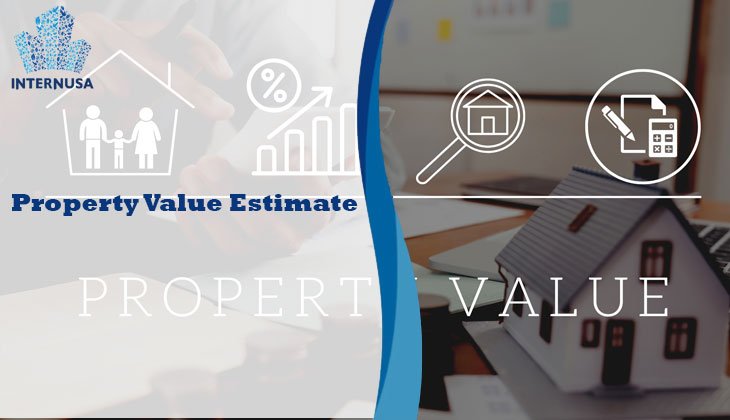Property Value Estimate: How to Accurately Evaluate Real Estate
In the world of real estate, understanding the true value of a property is essential. Whether you’re buying your first home, investing in rental properties, or selling real estate, an accurate property value estimate helps you make informed and financially sound decisions.
But how are property values estimated? What factors influence these estimates? And how can you, as a buyer or investor, ensure you’re not overpaying—or underselling?
Let’s break it down.
What is a Property Value Estimate?
A property value estimate is an educated guess of how much a property is worth in the current market. It reflects the price a willing buyer might pay to a willing seller, assuming neither is under pressure to act.
These estimates can be generated by:
Professional real estate appraisers
Automated valuation models (AVMs) like those found on online listing platforms
Real estate agents using comparative market analysis (CMA)
Property development companies like Internusa Development, which integrate local market insights and infrastructure planning into their valuations
Accurate estimates are critical for mortgage approvals, refinancing, taxation, insurance, and investment decisions.
Why Property Value Estimates Matter
1. Smarter Buying Decisions
If you’re planning to buy, an estimate helps determine whether a listing is overpriced. You can negotiate with more confidence, backed by real data.
2. Selling at the Right Price
For sellers, pricing a property too high could scare off buyers. Too low, and you leave money on the table. A value estimate strikes the right balance.
3. Investment Planning
Investors use property estimates to forecast returns, calculate rental yields, and evaluate appreciation potential. Knowing a property’s worth is key to long-term profitability.
Key Factors Influencing Property Value
Several variables affect a property’s value, including:
1. Location
Real estate is all about location. Properties close to public transport, schools, shopping centers, and job hubs generally command higher prices.
2. Property Size and Usable Space
A larger land or building area typically increases value. However, layout and usable space also matter. A well-designed smaller unit may be worth more than a poorly designed larger one.
3. Condition and Age
Newer or well-maintained properties tend to have higher values. Renovations, upgrades, and quality materials can significantly impact the estimate.
4. Comparable Sales
Real estate professionals compare similar properties sold recently in the same area to assess value. This is a cornerstone of comparative market analysis (CMA).
5. Market Trends
If demand is high and inventory is low, prices rise. If the market cools due to rising interest rates or economic uncertainty, values may drop.
6. Economic and Interest Rate Environment
Higher interest rates usually reduce buyer purchasing power, potentially lowering demand and affecting property values. Economic growth, on the other hand, typically boosts the real estate market.
7. Future Development Plans
Properties near planned infrastructure projects—like toll roads, airports, or industrial zones—often see value increases. For example, Internusa Development actively monitors such trends to offer investment-ready property options across Indonesia.
Methods to Estimate Property Value
1. Sales Comparison Approach (SCA)
This compares the property in question to recently sold, similar properties in the same area. Adjustments are made based on differences in features, location, or condition.
2. Cost Approach
Used mostly for new properties, this method estimates the cost to replace the property (including land) minus depreciation.
3. Income Approach
Used for rental or commercial properties, this method evaluates the income the property could generate and capitalizes it to determine value.
4. Automated Valuation Models (AVMs)
These are algorithm-based tools used by real estate platforms. They provide quick estimates but lack the nuance of human assessment.
5. Professional Appraisals
The most reliable method, especially for legal or financing needs. Certified appraisers consider multiple valuation methods and local market insights.
How Internusa Development Supports Accurate Valuation
Internusa Development, a leading player in Indonesia’s property market, doesn’t just build homes—it helps buyers and investors make smart, data-driven decisions. Here’s how:
Strategic Property Planning: Internusa selects locations based on infrastructure growth, economic activity, and urban planning.
Data-Driven Valuation: By combining historical price data, neighborhood trends, and upcoming developments, Internusa offers fair and transparent pricing.
Investor-Focused Tools: From ROI calculators to market reports, Internusa equips investors with everything they need to assess long-term value.
Common Mistakes to Avoid in Property Valuation
Even seasoned investors can misjudge property values. Here are a few pitfalls to avoid:
Relying solely on online tools: AVMs are useful, but they can miss recent updates or unique property features.
Ignoring future development: Overlooking future infrastructure or zoning changes can mean missing out on appreciation potential.
Overestimating renovation value: Just because you spent $50,000 on a kitchen remodel doesn’t mean the market value rose equally.
Emotional pricing: Sellers often overvalue their property due to emotional attachment. Always use data to stay objective.
How to Improve a Property’s Value
Planning to boost your property’s estimated value? Consider:
Curb Appeal Improvements: Fresh paint, landscaping, and a clean exterior can add instant value.
Energy Efficiency Upgrades: Solar panels, insulation, and efficient lighting not only save money but attract eco-conscious buyers.
Smart Home Technology: Adding automation and security features is increasingly expected, especially in urban areas.
Functional Renovations: Upgrade kitchens, bathrooms, and storage solutions. But don’t over-improve beyond your neighborhood’s average.
Knowing the value is knowing your leverage.
Understanding and accurately estimating property value is fundamental for every real estate transaction. It empowers buyers to make better offers, sellers to set the right price, and investors to maximize returns.
In 2025, with market dynamics rapidly evolving due to sustainability trends, urban migration shifts, and digital transformation, staying informed is more important than ever. Whether you’re working with an agent, using tools, or evaluating a development project—like those offered by Internusa Development—clarity on property value will always give you a competitive edge.





